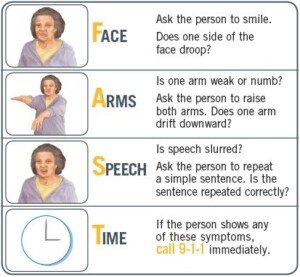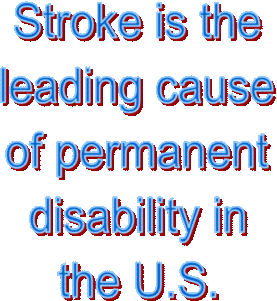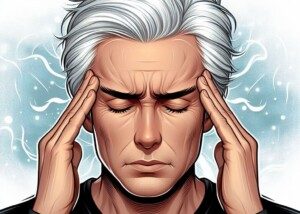A very brief transient ischemic attack is as much a medical emergency as is a full-blown stroke.
Sometimes, people who have experienced a transient ischemic attack (TIA) are not given clot busting drugs because their doctors don’t consider the condition serious enough to treat, says a study.
A TIA is a “mini stroke,” meaning, a blood clot forms in a blood vessel in the brain, blocking blood flow from that vessel to wherever in the brain it feeds. That portion of the brain then suffers.
However, a transient ischemic attack, like its name says, is temporary.
The clot dissolves, sometimes in under a minute, leaving the patient with no lasting effects; the patient may feel perfectly normal just a few minutes after a TIA.
A study at Foothills Hospital in Calgary, Alberta, Canada, shows that TIA patients, as well as those who had a minor stroke, are at a substantiail risk for disability and require early assessment and treatment.
No matter how minor the TIA symptoms are, the report says that early imaging of patients is crucial, and that the administration of clot busting drugs is critical if the imaging reveals a blockage in the brain.
TIA of One Very Brief Symptom vs. Full-Blown Stroke
These are equal to each other as far as degree of emergency: Get to the ER — even if what appears to be a TIA lasted only 20 seconds.
For instance, the inability to form words that lasts 20 seconds is just as much an emergency as the inability to use the right side of one’s body plus mental confusion plus double vision lasting three hours!
Whether it lasts 10 seconds or an hour, the same thing happens: a blood clot forms in the brain.
This is not something to take lightly, regardless of duration! The type of symptom is determined by the location of the stopped blood flow.
The study authors state that clot-busting treatment is not typically given because transient ischemic attacks are often deemed too mild to treat.
“Mild” TIA — is there a such thing?
“TIA is an emergency,” says Atif Zafar, MD, medical director of St. Michaels Hospital in Toronto, Ontario, and former director of the stroke program at University of New Mexico Hospital.
“If you are given a diagnosis of TIA, this means your physician is worried you have risk factors for a clot or plaque that are causing these neurological symptoms you’re complaining of,” continues Dr. Zafar.
“As a stroke neurologist, I take TIAs very, very seriously. However, if you present to the ED and your symptoms are mild and improving, we would consider holding [out] on the clot busting medication.
“Reason being, clot busting medication has a six percent chance of bleeding risks. So with you in the discussion, we have to weigh the risks and benefits of the treatment.
“Obviously, a very minor stroke with mild face numbness would not indicate the clot busting treatment if you were seen by me in the ED.
“Comprehensive TIA workup is needed to make sure we know where the clot or plaque is coming from, and how to ensure it wont act out again.
“TIA’s almost always require some change in treatment regimen. Blood thinner adjustment, cholesterol and blood pressure optimization are critical things your doctor will work with you on after a TIA event.”
A clot busting drug is not the same as a blood thinner such as Warfarin or Eliquis.
So even though you may not receive a clot busting drug, you’ll likely get a prescription for a blood thinner to take daily.
After all, if a TIA can happen once, it can happen again. The condition that causes a TIA is also perfectly capable of causing a massive stroke.

Remember “FAST” if you suspect a TIA or stroke.
More About the Study
The study involved 499 patients. Fifteen percent had at least a minor disability 90 days following their transient ischemic attack.
CAT scans revealed that some of the transient ischemic attack patients’ brains had narrowed blood vessels.
Other patients reported continuing or worsening symptoms.
These individuals were more than twice as likely to suffer disability at the 90 day mark.
For those particular patients, clot busting treatment should be considered.
After all, for every second following a transient ischemic attack, the brain may be losing oxygen.
In 2009, the American Heart Association and the American Stroke Association urged immediate action plus thorough testing for a transient ischemic attack — tests that are very similar to those given after a full-blown stroke.
The report reminds people that even though TIA symptoms “may pass quickly,” you should “immediately go to the hospital” to get the proper scans.












































